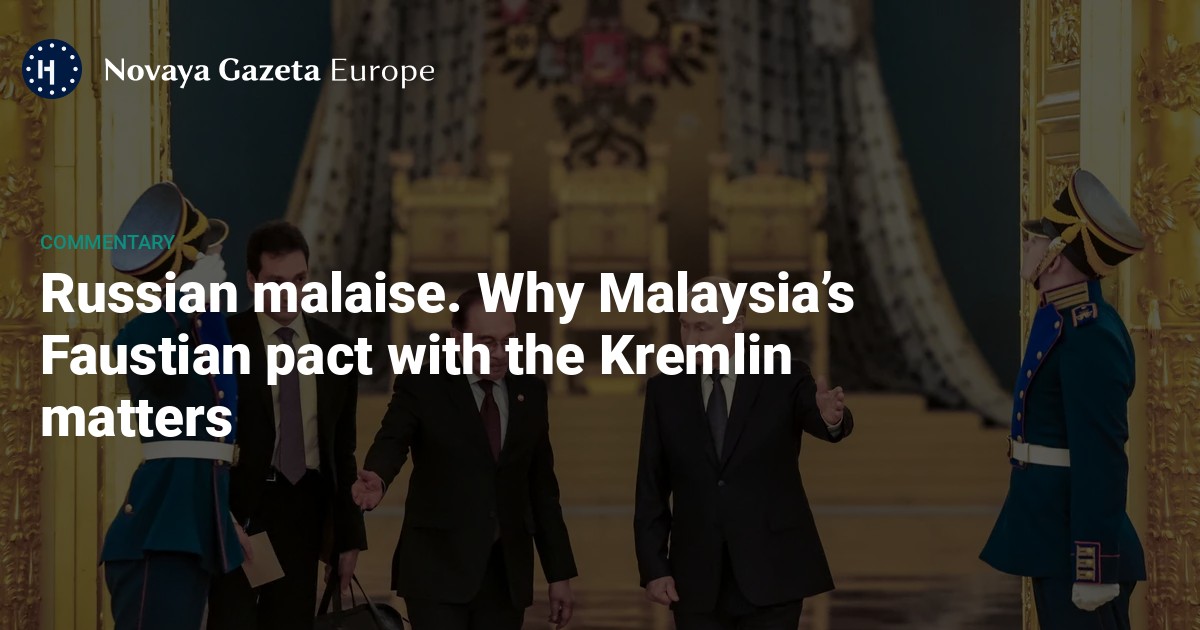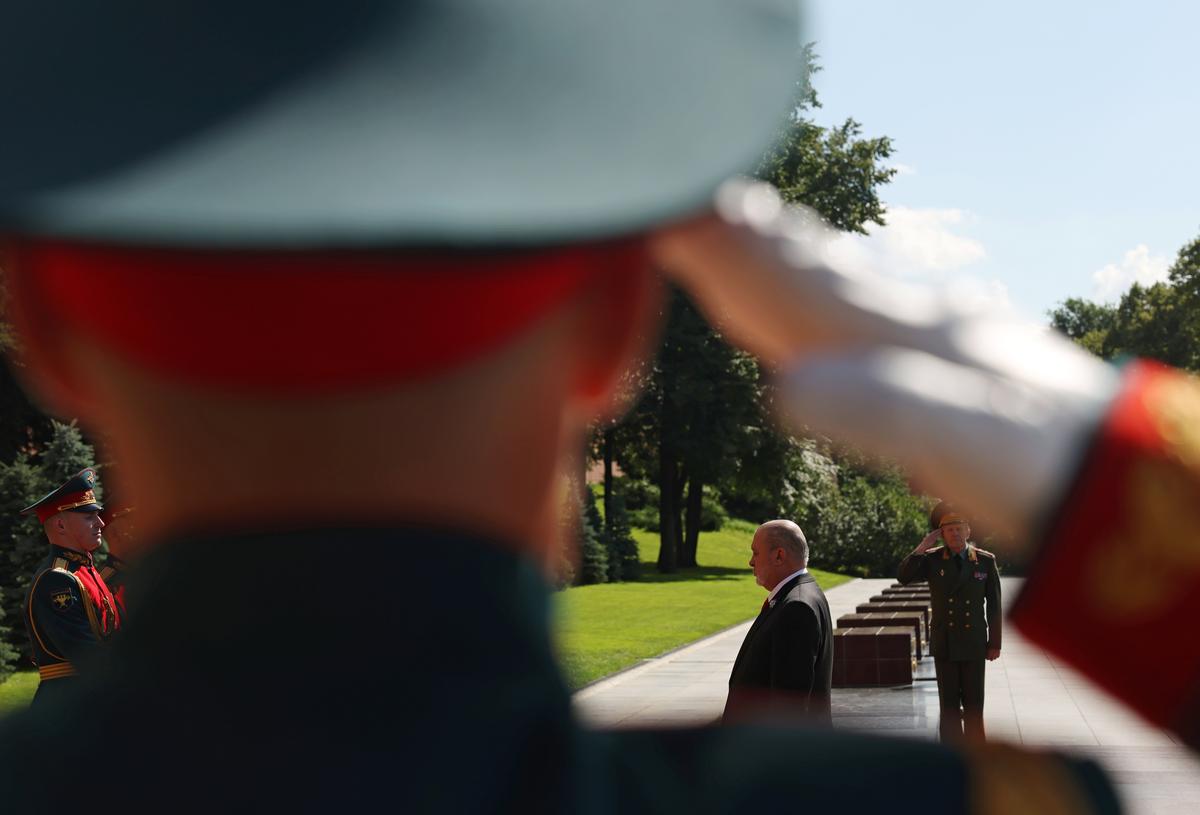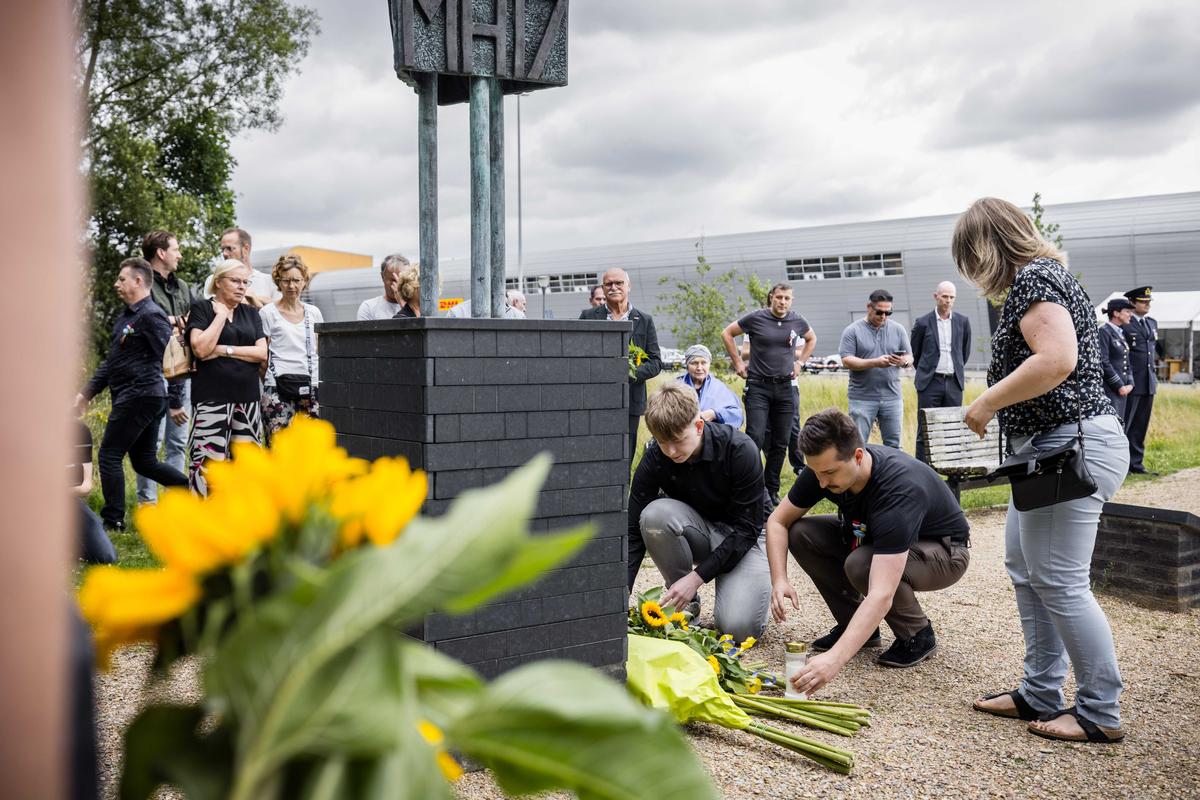



State visits to Russia by Malaysia’s prime minister and king in the past few months are evidence of efforts by both Moscow and Kuala Lumpur to forge a strategic alliance, potentially resulting in BRICS membership for Malaysia and an end to the years of recrimination over Russia’s involvement in the downing of Malaysian Airlines Flight 17 for Moscow.
For some time, Russia has been seeking to bolster commercial ties with the Association of Southeast Asian Nations, which Kuala Lumpur currently chairs, to compensate for its declining influence in Central Asia and the South Caucasus.
Middle-class Russians have long viewed Southeast Asia as an extension of Moscow’s “near abroad” — a term used in Russia to describe the now independent former Soviet republics — flocking there in droves to vacation and to buy property. Among the inhabitants of the region, which still bears the psychological scars of its colonial past, there is also a widely felt sense of kinship with Vladimir Putin, who many in Southeast Asia view as an anti-imperialist crusader attempting to cut the “Collective West” down to size.
Kuala Lumpur has allowed Moscow to avoid accountability for its role in the downing of Malaysia Airlines Flight 17 in 2014 that killed all 298 passengers on board.
Israel’s response to the Hamas attack that left 1,200 of its civilians dead on 7 October 2023 appears to have cemented the resolve of Malaysia’s Prime Minister Anwar Ibrahim — a lifelong Islamist zealot — to reorient Malaysia’s foreign policy towards Russia, China and the BRICS grouping they lead.
Indeed, notwithstanding the roughly 1.3 million Russian speakers living in Israel and Israeli Prime Minister Benjamin Netanyahu’s personal friendship with Putin, the Kremlin adopted an overtly pro-Palestinian posture following Operation Al-Aqsa Flood, even if its main aim in doing so was to ingratiate itself with the Muslim-majority BRICS members whose support has made Russia’s push for a multipolar world sound far more convincing that it might otherwise have done.
As a guest of honour at the 2024 Eastern Economic Forum in Vladivostok, Ibrahim used his platform to call out the West for its wilful blindness to the atrocities being committed in Gaza while simultaneously moving heaven and Earth to rally the international community behind Ukraine.

Malaysia’s King Sultan Ibrahim Iskandar takes part in a wreath-laying ceremony by the Kremlin Wall in Moscow, Russia, 6 August 2025. EPA/YEVGENIA NOVOZHENINA / REUTERS POOL
Russia, for its part, is more than happy to let this narrative of “Western double standards” take root in the Global South, knowing full well that disaffected developing nations are more likely to envisage a future tied to the BRICS grouping as a result.
Beyond its unwillingness to denounce Russia’s illegal invasion of Ukraine or participate in G7 sanctions against the Kremlin, Kuala Lumpur has allowed Moscow to avoid accountability for its role in the downing of Malaysia Airlines Flight 17 in 2014 that killed all 298 passengers on board.
Despite creating the illusion of a consensus-based admission procedure, Russia does have the final say on welcoming new entrants into the BRICS fold.
What remains unclear, however, is the scale of the horse trading that has gone on behind the scenes to get to this point, and more importantly, the concessions Malaysia’s king, Sultan Ibrahim Iskandar, must have made during his “dream” in-person meeting with the Russian dictator earlier this month.
Kuala Lumpur fancies itself a frontrunner for full-fledged BRICS membership, as demonstrated by the prime minister’s intense lobbying efforts. In the past year, Ibrahim has visited both China and India to secure their blessings for Malaysia’s BRICS candidacy, while also attending the group’s latest summit in Rio de Janeiro last month.
Meanwhile, to ensure Malaysia remains on the best possible terms with most other BRICS members, Ibrahim voiced his support for Iran’s right to defend itself when its nuclear facilities and main cities were bombed by Israel in early June, he has endorsed the case South Africa has taken to the International Court of Justice accusing Israel of genocide, and has even shied away from criticising the UAE for its outsized role in foisting the world’s worst humanitarian crises upon Sudan and Yemen.
That said, and despite creating the illusion of a consensus-based admission procedure, Russia does have the final say on welcoming new entrants into the BRICS fold. Mindful of how significant a foreign affairs win Malaysia’s fast-track entry to the non-Western alliance would be for its deeply unpopular prime minister, Putin is highly likely to make his backing contingent on several significant demands, chief of which will almost certainly be Kuala Lumpur abandoning its efforts to obtain justice for the victims of MH17 once and for all.
Moscow urgently hopes it can wish away the MH17 controversy and, along with it, any related damage to its brand or legal obligation to compensate the victims’ relatives.
In light of the downing of Azerbaijan Airlines Flight 8243 late last year at the hands of the Russian military and the subsequent diplomatic fallout between Baku and Moscow when Putin failed to directly admit Russia’s responsibility for the 38 people killed or their families, Moscow can ill-afford to have two such similar wounds fester simultaneously.
Indeed, Moscow urgently hopes it can wish away the MH17 controversy and, along with it, any related damage to its brand or legal obligation to compensate the victims’ relatives. However, should Kuala Lumpur effectively agree to sweep the incident under the rug, it will likely discover that there will be a price to pay for all but condoning the murder of 196 Dutch nationals.

Relatives of victims lay flowers to the victims of the MH17 flight disaster at a memorial in Eindhoven, Netherlands, 23 July 2024. Photo: EPA/ROB ENGELAAR
Whereas China and India have been subjected to international criticism for keeping Russia’s economy afloat through their record consumption of heavily discounted Russian oil, the West cannot afford to overlook the role played by mid-sized powers — including Malaysia — in replenishing the Kremlin’s war chest. Likewise, Thailand, Türkiye, the UAE and Kazakhstan should be held to account for sheltering Putin’s subjects and ensuring they continue to be insulated from the worst effects of Western sanctions.
As far as Malaysia is concerned, the EU does have a nuclear option at its disposal to strong-arm Kuala Lumpur into reversing course, and should consider issuing Malaysia with the same de facto “with us or against us” ultimatum that it gave Tbilisi last month over its democratic backsliding and the increasingly authoritarian behaviour of its ruling Georgian Dream party.
Malaysian citizens enjoy short-term visa-free access to the Schengen Area and would punish any government on whose watch the EU withdrew that right.
Much like Georgia, Malaysian citizens enjoy short-term visa-free access to the Schengen Area and would punish any government on whose watch the EU withdrew that right. Likewise, the UK could threaten to reimpose entry requirements on Malaysians, a significant number of whom study at British universities.
There is no silver bullet capable of restoring peace to Ukraine, but giving Malaysia a pass for flaunting its camaraderie with Putin’s Russia and with terrorist organisations such as Hamas, the West risks pushing Kuala Lumpur as well as other Global South ‘fence-sitters’ further into the Kremlin’s embrace.
Saahil Menon is a freelance journalist based in Dubai. Views expressed in opinion pieces do not necessarily reflect the position of Novaya Gazeta Europe.
The Russian government has banned independent media. We were forced to leave our country in order to keep doing our job, telling our readers about what is going on Russia, Ukraine and Europe.
We will continue fighting against warfare and dictatorship. We believe that freedom of speech is the most efficient antidote against tyranny. Support us financially to help us fight for peace and freedom.
By clicking the Support button, you agree to the processing of your personal data.
To cancel a regular donation, please write to [email protected]
VPNovaya
Help Russians and Belarusians Access the Truth
